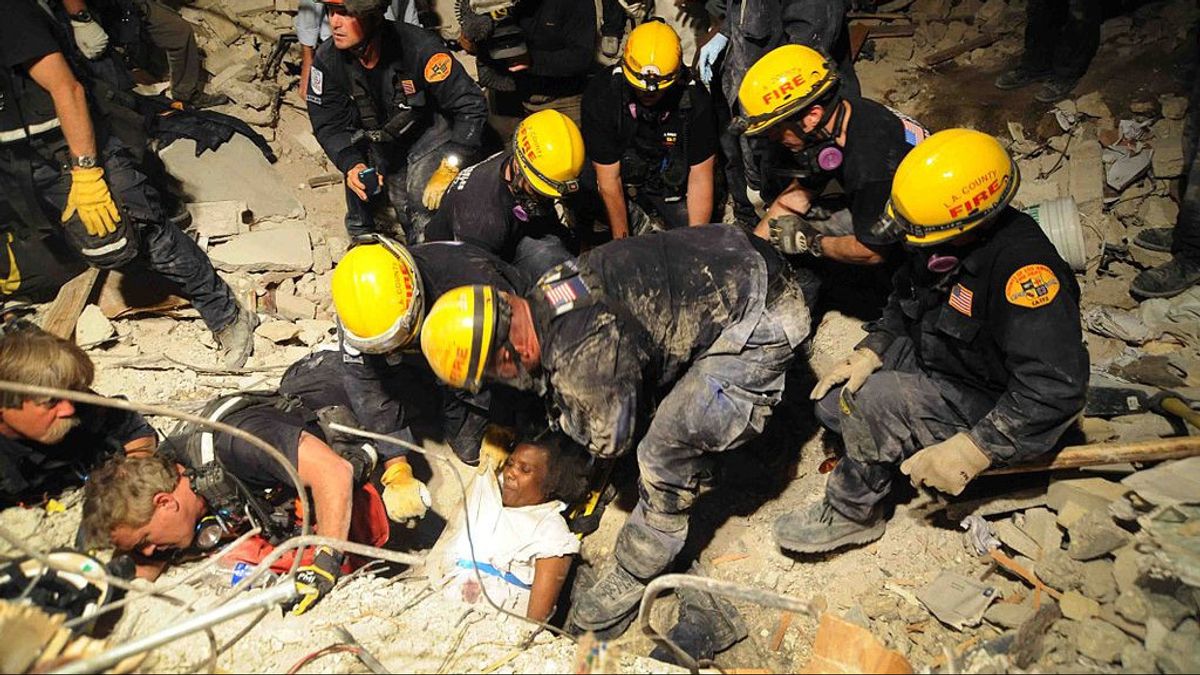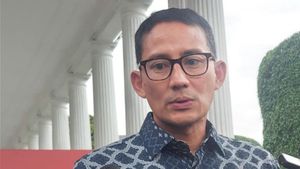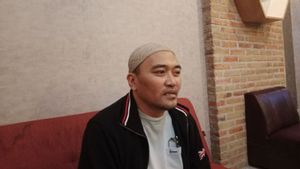
JAKARTA - On January 12, 2010, Haiti was hit by a large-scale earthquake. Information about the death toll from the incident is confusing. The government of Haiti says the official number is more than 300 thousand. But many authorities admit the death toll is impossible to really count. Nearly one million people were displaced.
Quoting Britannica, Tuesday, January 12, 2021, the earthquake occurred at 16:53 local time, about 25 kilometers southwest of the capital of Haiti, Port-au-Prince. The initial shock was recorded at 7.0 on the Richter scale (SR) and was immediately followed by two aftershocks of magnitude 5.9 and 5.5.
Other aftershocks occurred in the following days, including a magnitude 5.9 earthquake that struck on January 20 in Petit Goâve, a town about 55 kilometers west of Port-au-Prince. Haiti has not been hit by an earthquake of this magnitude since the 18th century, the most powerful of which was the 6.9 magnitude one in 1984.
After the earthquake, there were many ruins of buildings that define the landscape of the disaster area. The number of buildings destroyed was also due to the lack of building codes in Haiti. Without adequate reinforcement, buildings crumbled under the force of the earthquake, killing or trapping the occupants.

In Port-au-Prince, the cathedral and National Palace were heavily damaged. So are the headquarters of the United Nations (UN), the national prison and the parliament building. Even though at that time the Capital City had not yet recovered from two tropical storms.
Efforts by citizens and international aid organizations to provide medical assistance, food and water to victims were hampered by a power system failure. Broken lines of communication and roads blocked with rubble also contributed to the difficulty of delivering assistance.
A week after the incident, little assistance reached outside Port-au-Prince; over the following week, relief supplies were only sporadically distributed to other areas. Operations to rescue those trapped under the rubble stopped two weeks after the crisis, as hopes that anyone could survive that time without food or water began to fade.
It is estimated that around three million people were affected by the earthquake, which is nearly a third of the total population of Haiti. Of these, more than one million were homeless in the immediate aftermath.
The refugees were forced to take shelter with the materials found and donation tents. Looting became more prevalent due to insufficient supplies and was exacerbated by the thousands of prisoners who had fled because of damaged prisons.
In the second week after the incident, many city dwellers began arriving to remote areas, either on their own accord or as a result of the government's relocation program. This is done to relieve congestion and unhealthy conditions.

In October 2010, cases of cholera began to appear around the Artibonite River. The longest river which is the main source of drinking water is contaminated with dirt that carries cholera bacteria. Suspicions that UN peacekeeping forces in Nepal stationed near the river may be the source of the outbreak are confirmed by a leaked report of a French epidemiologist, December 2010.
The epidemic reached the refugee camps in Port-au-Prince in November 2010. In 2016, cholera sickened approximately 770,000 people in Port-au-Prince and caused fatal effects to more than 9,200. A 2016 report by the organization Doctors Without Borders claimed that many of the cholera cases in Port-au-Prince were likely underreported significantly.
Several organizations have filed demands against the United Nations to hold them accountable for the cholera outbreak. The UN is considered to be the party responsible for installing a new water and sewage management system, and compensating those who fall sick or lose relatives due to cholera.
The English, Chinese, Japanese, Arabic, and French versions are automatically generated by the AI. So there may still be inaccuracies in translating, please always see Indonesian as our main language. (system supported by DigitalSiber.id)









